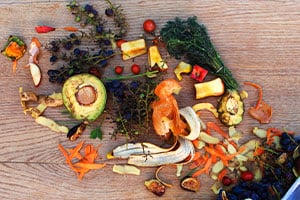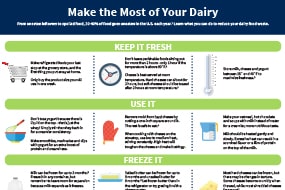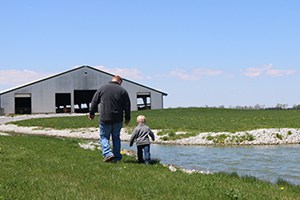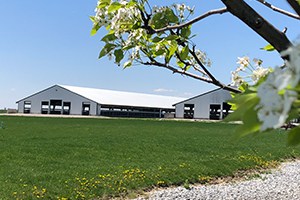Everyone needs to eat! Growing and producing food will always require the use of natural resources, but some of the biggest sustainability solutions come from reducing food waste.
The Impact
The U.S. Department of Agriculture (USDA) estimates that 30% to 40% of food produced in the U.S. is wasted, and the Environmental Protection Agency (EPA) estimates that 66.2 million tons of food was wasted in the food retail, food service and residential sectors in 2019. Wholesome food that could help feed families in need is instead sent to landfills. As a result, land, water, labor and energy are used to transport and dispose of discarded food and maintain landfills that release greenhouse gasses as food decomposes.
Whether it’s because we purchase too many groceries or become tired of leftovers, food waste is common in most households. The economic and environmental impact of this waste is huge, especially considering the resources needed to bring food into our stores and homes. The best approach to reduce food waste is not to create it in the first place!
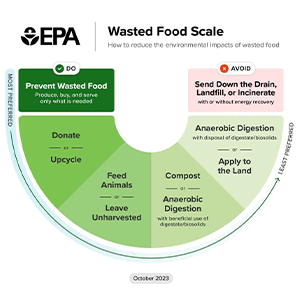
Doing Your Part
A simpler way to think about reducing food waste is to follow the Food Recovery Hierarchy proposed by the USDA and EPA. The top levels include the most effective ways to prevent and divert wasted food, including source reduction, feeding hungry people and feeding animals. Lower levels of the hierarchy address ways to harness some of the benefits of unused food before throwing it away.
Many dairy farmers do their part to reduce food waste by incorporating foods that would otherwise go to a landfill, while providing vital nutrition for cows that will ultimately be made into milk and return to the food system. Up to one-third of a dairy cow’s diet comes from byproducts, such as almond hulls, brewers’ spent grain and “ugly” vegetables that grocery stores won’t sell, which helps to reduce food waste and methane emissions in landfills.
Check out our tips to reduce food waste in your home and ways to make the most of your dairy foods. As we grow to understand the environmental impact that we have on our planet, we all need to work as a team to reduce food waste!

